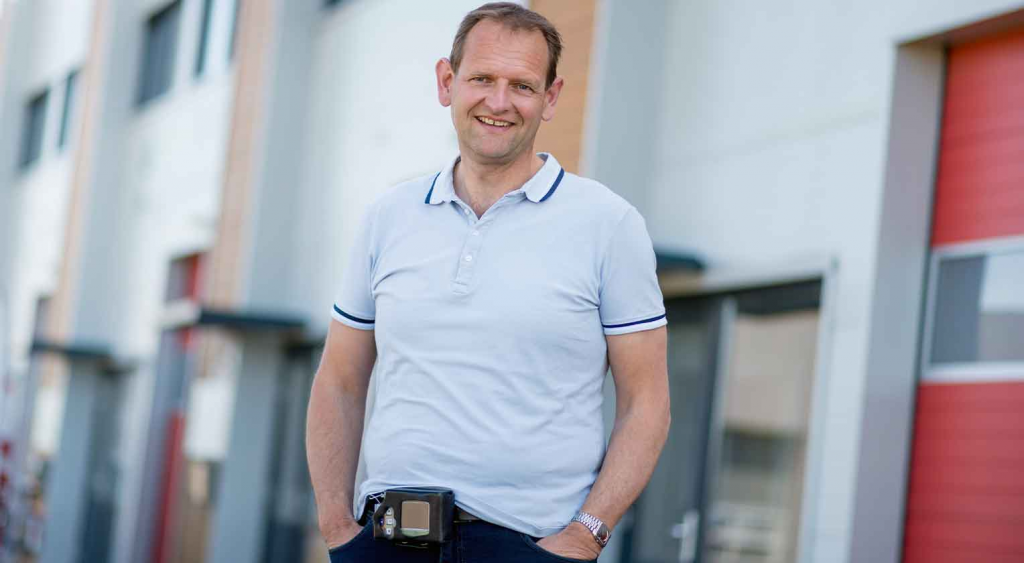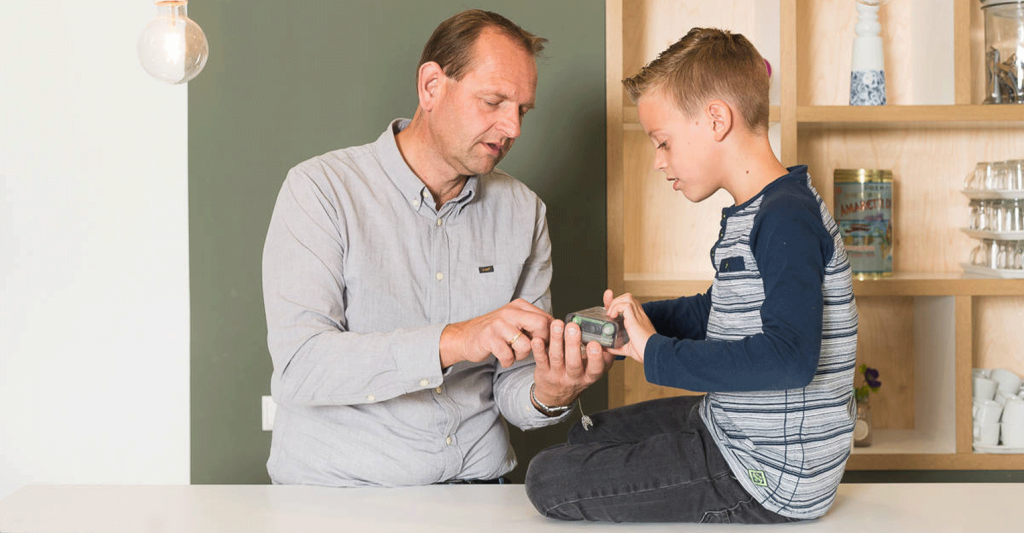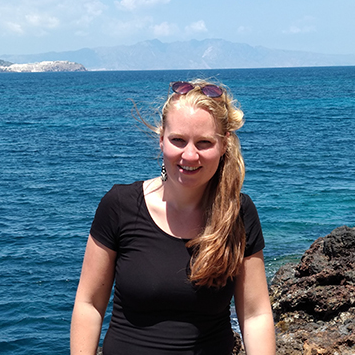1 July 2021 – The Inreda AP, a living legend
Dear reader,
Welcome to the second newsletter of 2021.
We have great news: 2 museums are interested in exhibiting the artificial pancreas. That is of course very nice and a great honour. Read more about this at ‘The Inreda AP in museums’.
We would also like to tell you something about the first project in the market that we are carrying out with health insurer Menzis and hospitals in the middle and east of the Netherlands. There is now a group that has been using the AP for a few months and we have evaluated this period. For more information, see ‘The first months of AP treatment’.
Also this year, the Engeltjes family is organizing a sponsored bicycle tour with the aim of making an AP available for children. On Saturday 4 September, cycling will take place again across the Veluwe. Read more at ‘Bicycle tour against diabetes in children’.
Finally, one of our colleagues will be put in the spotlight and will tell you something about herself. She is, among others, busy with getting the patients started on the AP treatment. You can find this under the last item ‘Colleague in the spotlight’.
Enjoy reading!
Team Inreda
The Inreda AP in museums
Rijksmuseum Boerhaave
Rijksmuseum Boerhaave in Leiden has asked us to donate an Inreda AP to the museum so that it can be included in the permanent collection. Boerhaave is a national science museum. The collections of Rijksmuseum Boerhaave reflect five centuries of scientific history in the Netherlands and show what science is all about: curiosity, courage, creativity and perseverance.
With a collection that showcases five centuries of research and innovation, and an intensive collaboration with leading figures from today’s science, Rijksmuseum Boerhaave offers visitors of all ages an intriguing glimpse into the world of science. Within that framework, the museum believes that an innovation such as the artificial pancreas belongs in this collection. The museum is therefore very honored and it is very nice that the Inreda AP is placed next to medical inventions such as the artificial kidney.

Now that the museums are open again, on 3 July Robin Koops will hand over his first-worn prototype of the Inreda AP to director Amito Haarhuis. This AP will be on display in an exhibition until October 21, after which the device will be added to the permanent collection.
Take a look and discover the world of science and medicine: www.rijksmuseumboerhaave.nl
Technology museum Hengelo
We have now loaned a few prototypes of the Inreda AP to Oyfo Technology Museum in Hengelo. These will be shown in an exhibition from September.

In the past, the Industrial Archeology foundation of Oald Hengel started collecting and exhibiting technical objects from companies in Hengelo and the surrounding area. The aim of the museum is to make the historical and technical development of the Twente industry accessible to a wide public.
For more information, visit the website of the museum: www.oyfo.nl/Techniekmuseum
The first months of AP treatment
Evaluation
The first project of the Inreda AP in the market started at the end of last year and there are now 23 people who have their diabetes treatment with the Inreda AP. Together with health insurer Menzis and six hospitals in the middle and east of the country, we guide these people through their first experiences with a completely different way of treating diabetes. For us as the supplier of the device, but also for the practitioner and the health insurer, it is important to see whether we achieve the goal for which we entered into this collaboration. This goal is to look at the use of the Inreda AP by a larger group of people over a longer period of time. Questions such as: what is the effect of the Inreda AP over a longer period of time in larger numbers of patients?, what does the use of the Inreda AP mean for the patient? and how does the hospital experience this new diabetes treatment? we try to answer. That is why we started with a small group of people at the end of last year, so that we could now evaluate the first findings, a few months after the start-up. The idea behind this is that, if necessary, we can take the results of this evaluation into account to further optimize the device, the training and our service.
We have also gained experience in the medical field, but at the moment it is still too early to draw any conclusions. We will further investigate the observations in a follow-up study of this project with 75 people.
Personal experience
We think it is very important to hear what people experience and what they think. The people are the ones we do it for. We can learn a lot from their experiences and their ideas. Here are questions like: How do you experience the treatment with the AP? what does it do to you? How are you? of interest. We interviewed a few people and asked them these questions ourselves. A short video (in Dutch) has been made of this.
We asked all users what they think about the AP treatment so far and about our training and service, and we got a lot of nice and positive responses. Of course there are also some drawbacks, for example about the alarms, but those are good lessons for us for improvements to the AP. We mainly get back that people are happy with the AP and that they would no longer want to do without it.

Experiences in the hospitals
We have evaluated with the participating hospitals how the collaboration with Inreda in this project is progressing and about the experiences they gain with the AP treatment. This shows, among other things, that it is good to ask yourself what the added value of the AP could be for you compared to the “old” treatment. This can be, for example, ‘more peace of mind’, but also a ‘better balance in your glucose levels’. If you discuss in advance with your doctor what the AP treatment could bring you, you can get into it very motivated and purposeful.
It has been found that it is important for the physician to properly discuss the patient’s expectations prior to using the AP. If the patient starts the AP with enthusiasm, but also with a somewhat realistic picture, the treatment seems to have a good chance of success.
It also emerges that intensive support for the patient during the first use (especially training and coaching by Inreda) is very important. Patients need to be able to ask questions, practical questions, but also confirming and in-depth questions. We would like to support them quickly and adequately.
There are also some technical points for improvement, which we will tackle as soon as possible.
In short, a good start with a number of tips for improvements that we will follow and with which we can improve our service. There is great enthusiasm for the AP, both among patients and in hospitals. This gives a lot of confidence for the future.
Bicycle tour against diabetes in children
The Engeltjes family is organizing a sponsored bicycle tour for the third year in a row, with the aim of raising money (again) to make an AP available for children.
On Saturday 4 September, three different routes can be ridden across the Veluwe: a sportive tour (135 km), a mountain bike tour (55 km) and a recreational tour (55 km). In previous years, many people have enthusiastically cycled along.
Goal
To bring the AP for young people and children one step closer, the goal that Cycle against Diabetes wants to commit itself to this year, just like in 2020. The foundation is therefore convinced that the artificial pancreas can take away many concerns for young people and children, and also for their parents. Read more about this in their blog (in Dutch) via www.fietstegendiabetes.nl/blog
Book September 4th in your agenda and go for registration to the website of the organization: www.fietstegendiabetes.nl/de-tochten-van-fiets-tegen-diabetes

Get in motion and bike along!
Colleague in the spotlight

Who are you?
I am Lyan Vlaskamp and I am 26 years old. Before I started at Inreda, I studied Technical Medicine at the University of Twente in Enschede. After having spent the early years of my studies in Enschede, I have lived in various places in the country to complete my internships for my studies. Nowadays I live in Veenendaal with my boyfriend Robin, but I have enjoyed driving every day to the east of the country for 1.5 years now to work at Inreda!
What do you do?
I am part of the medical department at Inreda. On the one hand, I am conducting various studies here to further optimize the Inreda AP. This includes testing new sensors, new types of insulin/glucagon, but also expanding the target group for the Inreda AP. On the other hand, I am concerned with the users of the Inreda AP who have started the Inreda AP treatment. I will keep a close eye on them for the first 2 months. We assess whether we are satisfied with the settings of the device and whether the treatment shows the desired results. We are in close contact with the doctors to provide optimal care for each user.
Do you have a passion for something?
My passion is to bring new medical techniques to people. In recent years, medical developments come up everywhere, but few of these actually reach the patient. Here I like to bridge the gap and connect the technical and medical world.
And how wonderful it is to let this passion become reality at Inreda; an incredibly close team with the same goal in mind; to allow the people with diabetes to lead a ‘normal’ life again. To achieve this goal, I like to explain to doctors what our device stands for and what this can mean for the patient. In addition, I also keep a critical eye on the Inreda AP so that we can further develop the device and therefore allow it to function optimally.
What do you do in your spare time?
From an early age I have been a real handball fanatic, I still do this with great pleasure. I also like to cycle round. Here on the Veluwe, the routes are beautiful! In addition to sports, I like good cooking, so I don’t turn my hands to put a dinner with several courses on the table. Finally, I also like to have a drink and play games with friends.
How did you get a job at Inreda?
As part of my study Technical Medicine, you do various internships for two years. In addition to all the internships in the hospitals, I also wanted to do an internship in a company. Funny detail: I went into this internship with the intention of excluding a possible position in a company later on. I thought: business is not for me. So that went a little differently than expected! I felt completely at home with Inreda. The joint passion, the common sense and for me personally the diversity in work quickly convinced me: after my graduation internship in Utrecht, I very quickly returned to Inreda with great pleasure!
Has something fun, crazy or memorable happened at work?
I continue to find the moment that a user actually starts with the Inreda AP treatment very special. After 2 intensive training days, the moment really comes on day 2 when the device is switched on and the old treatment can be stopped. This is often an emotional moment that also touches me personally. All users have spent many years trying to manage their diabetes in the best possible way, but often this has remained difficult and challenging. The moment the Inreda AP actually turns on, it feels like a regaining freedom, relief and hope for a new life. I really wish this moment for every person with diabetes.
What do you do in 5 years time? What is your goal?
I hope that in 5 years many more people will be able to use the Inreda AP. Not only adults with type 1 diabetes, but also children. We can probably give them a lot more freedom. In addition, I hope that we can further develop the device so that it becomes a lot more user-friendly.
